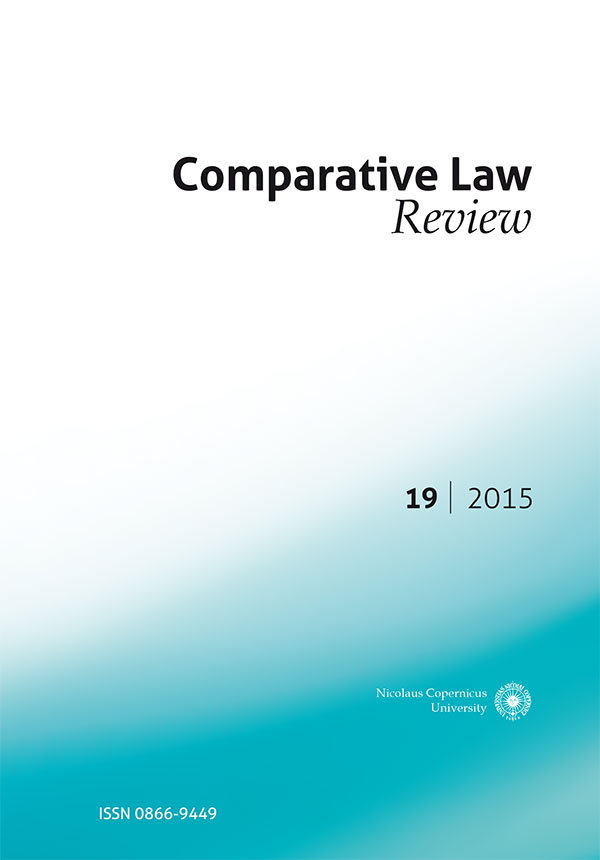Irrevocability of Performance Rendered for Mutually Illegal or Immoral Purpose in Roman Law, German Law, and English Law
DOI:
https://doi.org/10.12775/CLR.2015.003Słowa kluczowe
unjustified enrichment, performance for illegal or immoral purpose, in pari delicto melior est conditio possidentis (defendentis)Abstrakt
This paper deals with the very difficult problem of recovery of a performance rendered for illegal or immoral purpose where both parties, the giver and the recipient, violate law or offend good morals. In such a situation their contract is invalid and the parties cannot claim the counter-performance or damages for non-performance; however, if the performance has already been made, the question arises what to do with it, in particular whether the subject of the performance should be given back, or can be retained by the recipient. The crux of the problem is that where both parties are equally in the wrong, neither deserves legal protection or privileged legal position.This paper presents how the problem is solved in three very important legal systems that have developed rules which have served as a model for regulations or case law in many countries. The solution proposed by Roman law and adopted in German and English law is that there is no recovery – the giver is not entitled to claim his performance back. At a very general level this solution is justified by the Latin maxim in pari delicto pari potiorem esse possessorem (Roman law), in pari turpitudine melior est causa possidentis (German law) or in pari delicto potior est conditio defendentis (common law). In fact, only Roman law resolved that problem in the very simple way suggested by the maxim, while in both German and English law the solution and policy behind it are much more complicated. Apart from the main course of the analysis, the paper contains: a brief description of the category of performance rendered for illegal or immoral purpose, an analysis of the bar to recovery of the performance, exceptions to the bar, justification of the adopted solution and disputes in the law doctrine and in case law concerning that issue.
Pobrania
Opublikowane
2016-01-20
Jak cytować
1.
SOBCZYK, Marek. Irrevocability of Performance Rendered for Mutually Illegal or Immoral Purpose in Roman Law, German Law, and English Law. Comparative Law Review [online]. 20 styczeń 2016, T. 19, s. 49–75. [udostępniono 8.7.2025]. DOI 10.12775/CLR.2015.003.
Numer
Dział
Studies and articles
Statystyki
Liczba wyświetleń i pobrań: 526
Liczba cytowań: 0



